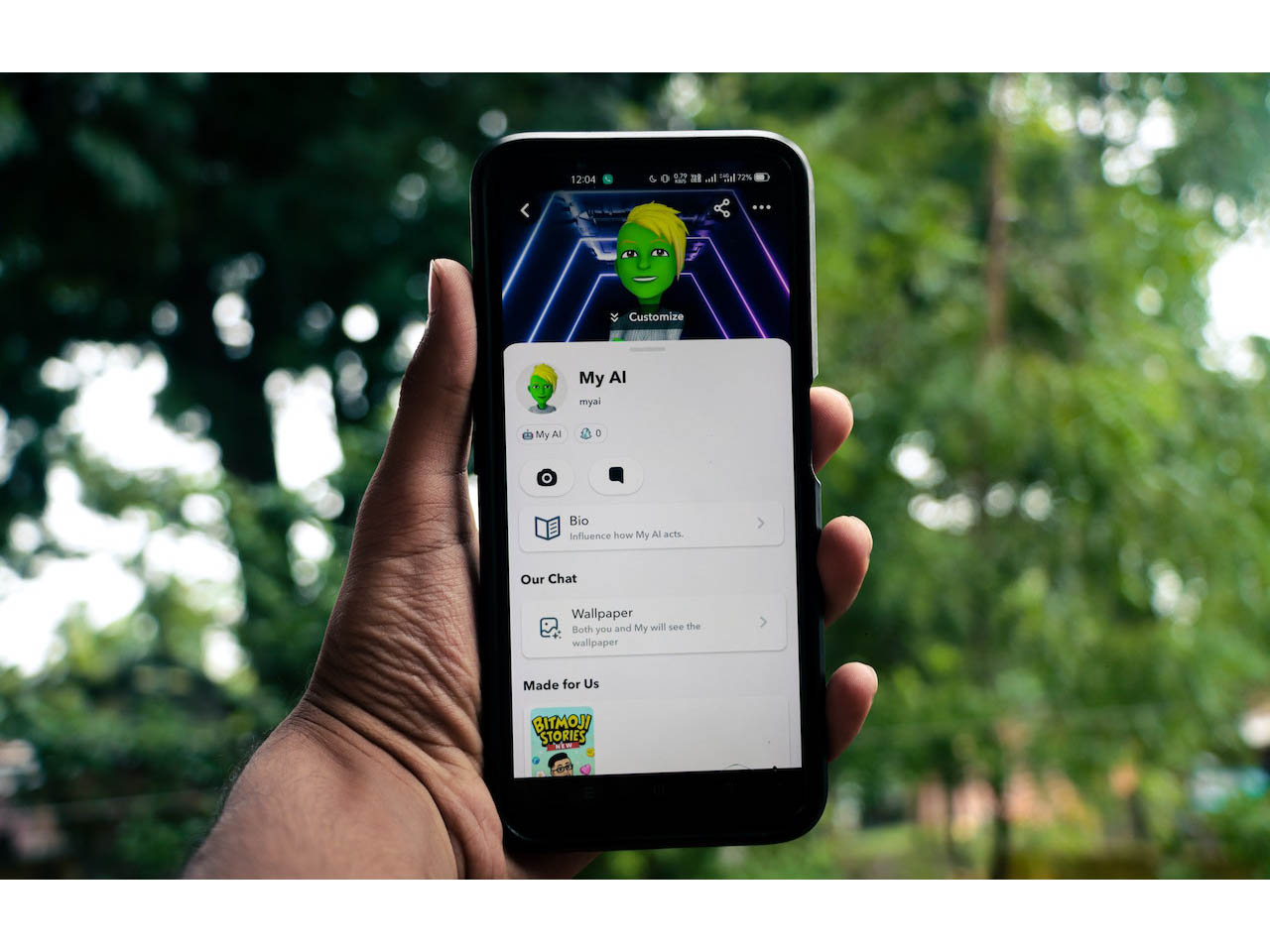News - Digital/Tech
Will advertising’s glorification of AI ruin GenZ’s mental health?
August 17, 2023
.jpg) Advertisement
AdvertisementA few months into the launch of Snapchat’s new My AI feature and horror stories are making headlines. From giving advice on how to cover the smell of smoke to ill-advised dating advice, the chatbot’s lack of cultural nuance has the potential to cause harm for users.
My AI is only the first in a long line of AI developments and while we know that Snapchat may review the feature, it’s pulled the scab off of what could be viewed as a much larger scale issue that AI will bring; the severe impact it will have on GenZ’s mental health in the Middle East.
Powered by ChatGPT, My AI allows users to customize the chatbot’s name, design a custom Bitmoji avatar and even bring it into conversations with friends. The tool is designed to mimic human interactions, allowing it to talk in most languages and be trained to use colloquial language patterns.
Posing as a friend, it can give advice on how to mask the smell of alcohol and pot and even go so far as to give advice on having sex with a partner who is much older. This advisory capacity of the tool has led users to share deep personal information with Snapchat beyond the information it already has access to, like your location.
The Arab Youth Survey found that around 40% of young people in the region know someone suffering from a mental disorder. However, 80% of those with severe mental disorders are not seeking treatment. Compound this with the new My AI feature becoming an easy way to seek advice without needing to ever speak to a human being and the results are not going to be good.
Chatbots, like MyAI, are programmed by humans and rely on algorithms, which may contain biases or inaccuracies. This could lead to individuals receiving incorrect or potentially harmful advice or information that could negatively impact mental health.
Around the world this poses a number of challenges. However, in the Middle East, the cultural and religious implications of this are amplified:
- Increased Feelings of Loneliness
With AI chatbots unable to provide the level of emotional support needed to address mental health issues, this could potentially exacerbate feelings of loneliness or isolation in GenZ, particularly for those who already have limited social support networks.
- Creating New Barriers for Seeking Treatment
With chatbots being viewed as being more trustworthy than humans, individuals may avoid seeking necessary treatment from mental health professionals. Fostering heavy reliance on AI chatbots for emotional support, potentially exacerbating symptoms or delaying recovery. Not to mention the risk of addiction or over-reliance on chatbots themselves.
- Lack of Cultural & Religious Understanding
AI chatbots do not fully understand or appreciate the cultural and religious norm leading to miscommunication or culturally insensitive responses. This lack of understanding could create frustration or exacerbate existing mental health issues among users, who may feel alienated or misunderstood.
With AI being the new favorite tool in the advertising industry and as a body responsible for shaping culture in the Middle East, we have a responsibility to be mindful of where we use AI and how we talk about it. Turning it into a trendy and popular tool not only supercharges its popularity but ignores the ramifications that it will have on younger generations.
How much more can we glorify AI before it has irreversible impacts on GenZ in the Middle East and how much responsibility should advertising take on the popularity of AI among GenZ in order to support and protect young minds?



.jpg)










